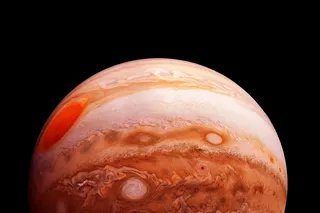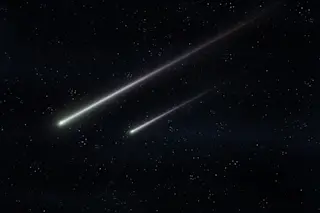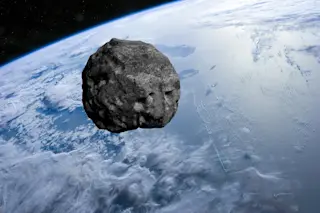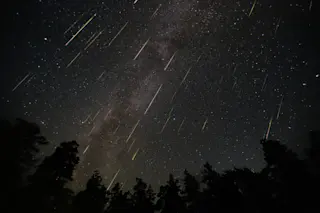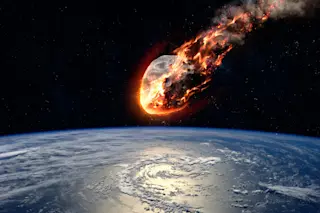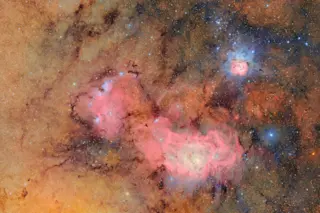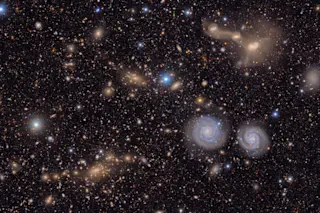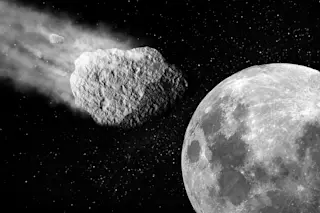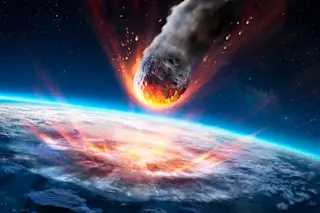Why do raisin-size stones amaze and entertain us when they hit our atmosphere and become hot rocks? Some of us might yawn during a lavish Broadway musical, but let nature hurl a pebble across the sky and everyone cheers. It's a reaction you, too, can enjoy come August 11, the night of the Perseid meteor shower.
Whether this annual show fizzles or sizzles depends almost entirely on the moon. Luckily, this year, unlike next year, our skies will be perfectly moonless on the night of the shower. In fact, for the first time in 38 years, the invisible new moon lands smack on meteor day. So even from a city rooftop--a less than ideal viewing post--you can watch a shooting star bisect the heavens every three or four minutes. For the best spectacle, of course, you'll need to get away from glaring city lights; few meteors shine brightly enough to ...



